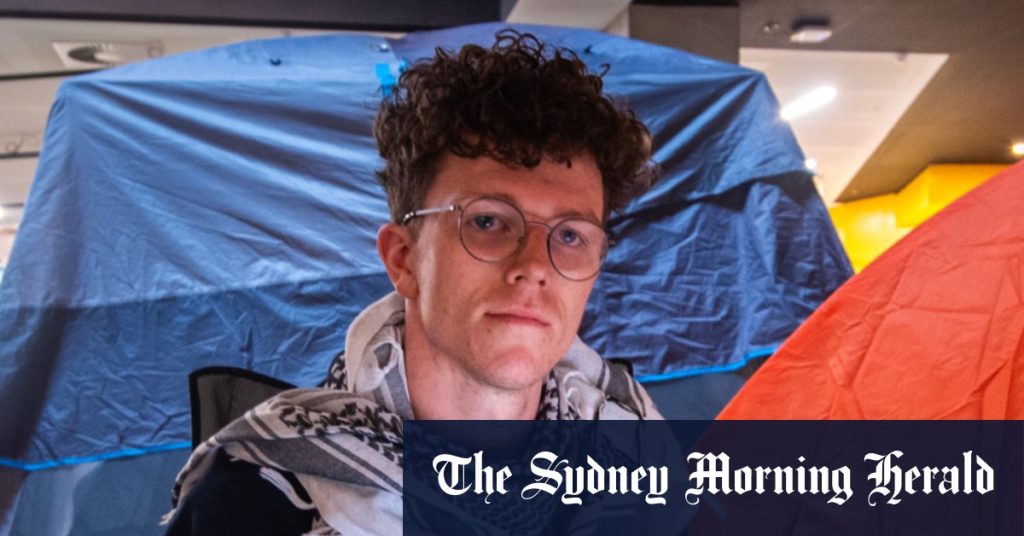The sit-in protest at the University of Melbourne has sparked a conflict between protesters and university management. The university has threatened to send in law enforcement to clear the camp, but Victoria Police has not received a formal trespass complaint. The protesters have renamed the Arts West building Mahmoud Hall in honor of Palestinian student Mahmoud Alnaouq, who was killed in Gaza. Protesters are receiving support from students and staff as they continue their protest against the university’s alleged complicity in the defense industry. The stand-off has caused disruptions on campus, with classes in the Arts West building being canceled for the third day in a row.
Not all students support the protests, with some feeling intimidated and harassed by the protesters. Jewish groups have called for an end to the protests, citing concerns about signs calling for “intifada” and chants for the destruction of Israel. Victorian Liberal Party deputy leader David Southwick has voiced support for police intervention to ensure the safety of students who feel threatened. Some Jewish students have expressed their concerns about the rise of antisemitic narratives on campus following the recent attacks by Hamas.
Despite the opposition from some students, the protest organizers, including Jewish students, insist on continuing with their demonstration. The camp at the Arts West building has become a site of activism and solidarity, hosting events such as Shabbat Friday prayers. The protesters have received support from nearly 200 university staff members who have signed an open letter backing their cause. The university claims that the protest camp poses a safety risk and causes damage to university property, but the protesters remain steadfast in their demands for accountability and action from the university administration.
The current stand-off between the protesters and university management is reminiscent of past conflicts at the University of Melbourne, such as the barricade of the vice chancellor’s office by students in 1974 and the violent protests against the introduction of HECS payments in 1989. It remains uncertain whether the current situation will escalate to that level of violence, but both sides show no signs of backing down. The protesters have met with university management, who have rejected their demands, leading to a stalemate in the negotiations. Protesters are prepared to face academic discipline to ensure their voices are heard, with no intention of ending the sit-in until their demands are met.


